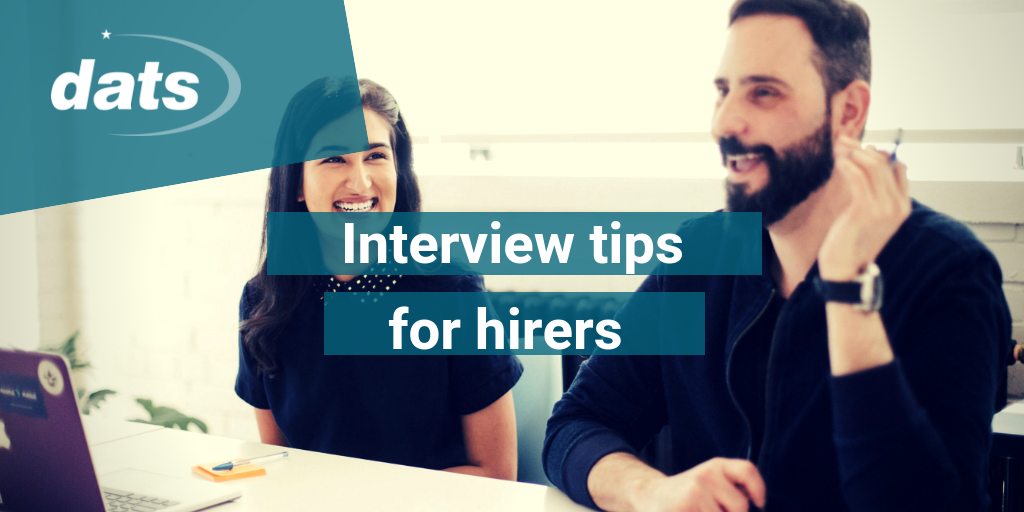

After working for many years in UK Engineering, we know a thing or two about what makes a great hiring experience – on both sides of the recruitment drive. It’s not just down to the candidates to impress you and employers also need to think carefully about showcasing your brand at the interview stage, as well as understanding them inside-out.
There’s a lot to consider… what to ask, for instance. How do you reflect your company values? And what might persuade your interviewee to join? Competition ‘s rife, so you can’t afford to lose an incredible candidate who fits the bill and is ready to make a mark on your business.
If you need guidance, read on for a recruiter’s POV on the best practices and tips for your next hiring plan.
Treat every role as a unique prospect
First, we must recognise you aren’t looking for the exact same person over and over again. Positions shouldn’t just be filled with a like-for-like replacement. Industries change; technologies move on. Skills, expectations and technical abilities change too. So what makes this person suited for now?
Of course, you should take on the help of a Recruitment Consultancy that knows what these new watermarks may be. But do some research beforehand. See what other, similar businesses are doing. Read up on industry magazines and online communities. Steadily, you’ll find out how new skills are bolting to other, more traditional talents in your marketplace.
Define the talents you want, not just the personality
Often, employers will favour a candidate based on instinct, not suitability. But some level of box ticking is essential in terms of what someone can do, instead of how they come across. At the end of the day, this is what really matters – especially when it comes to technical work.
We may ask our clients what’s more important – engineering or leadership? Does the candidate need a degree in mechanical sciences? Are they trained in BIM? Would you rather have someone who has worked for a mixed-use project in the past, or a modular development? Again, pull this kind of information together with your talent partner. It’ll help you form your interview questions and ensure you know exactly what you’re looking for in your ideal candidate.
Pick an interview process and stick with it
There are several ways to format an interview. Each has its merits – it depends on the role, and how you prefer to engage with people. But try to find a method that works for you and your business, and maintain that approach.
Here are a few choices:
- The Q&A: Ask 10-15 formal questions you’ve prepared in advance. Some can be specific to the role, whereas others can be more aligned with the company – for example, “Does working from home appeal to you if we don’t need you directly on-site?” Then open the floor to the candidate and see what they’d like to know.
- The competency interview: It’s very similar to the Q&A, yet focuses more squarely on challenges and situations the candidate may find themselves in. You present a problem, they mull it over, and they answer as honestly as they can. “Are you able to think of a time when…” “If X was to occur, how would you react?” “Tell me about a way in which…” These are all great on-the-spot questions.
- es The getting-to-know-you: This is more casual. You can enquire about the candidate’s backstory as they take you through their work history, discovering their personal qualities along the way. You may want to put it at the front or final stage of your interview process.
- The test: Candidate quizzes are a common way to test how someone thinks and what they know. There are several kinds to choose from – one type is a psychometric test. Normally a multichoice format, such tests will rate an individual’s feelings on a range of statements from ‘strongly agree’ to ‘strongly disagree’. An example statement may be: ‘You are comfortable heading a team of 10 or more people’; the candidate then selects their rating. Another popular test involves software, in which candidates work through mathematical, coding or systematic problems under timed conditions.
Remember that you don’t need to commit to just one technique. Your interview process may work best for you/your organisation by combining several techniques together. Something that can also be useful is having multiple people involved in interviewing. Getting more than one opinion is often really helpful and can make the decision making process a little easier.
Have multiple stages – but not too many
In our experience, one meeting isn’t enough. It’s much better to call candidates who made a good first impression back for a second interview. Two or three rounds will reveal consistencies and allows both you and the candidate to relax and get to know each other better.
However, don’t make the process too long for its own sake. Contractors, for instance, only tend to need two interviews – any more can be overkill considering the temporary nature of their work.
For long-term hires, you might raise that to three. It could work out something like this:
1) Head a Q&A session for candidates. It’s crucial to explain your company benefits – holidays, flexible working, maternity/paternity leave, health insurance, or anything else – upfront and as early as you can. If they know what’s on the table, it’s easier to make a decision they can trust.
2) Invite the shortlisted candidates back for a test, or send them a link remotely to an online psychometric test. This will show you their skills, intelligence and emotional qualities. DATS offers Thomas International psychometric testing; find out more here.
3) With two or three finalists in the running, perhaps have one more sit-down so you can really get a sense of what they’ll be like to work with on a personal level.
With all these elements combined, you’re ready to begin your search.
Don’t forget to follow up within a few days
Candidates appreciate a swift reply, even if it’s a ‘no’. Your reputation within the sector will grow as more interviewees come away feeling as if you care about them, which in turn, attracts more candidates. So be friendly, punctual, and commit to the deadlines you give for a response. Thank the interviewee for turning up and offer constructive feedback when you can.
Having a sector-leading recruitment partner can play a crucial role in getting the results you want. DATS Recruitment can always deliver them. We’re the Northwest’s top talent source for Engineering – contact us to learn why we’re so well-regarded in the UK sector.
Benefits of Apprenticeships
Apprenticeships have long been prevalent in the engineering industry but have grown in popularity in all areas in recent years – maybe owing to the introduction of the Apprenticeship Levy in 2017. According to UCAS, there are now approximately 1500 different job role...
10 Predictions For Engineering Recruitment In 2020
The end of one decade marks a period of reflection, but it also provides a reason to look ahead. British engineering has undergone considerable change in the last 10 years. From the decline in oil and gas production to the arrival of BIM, CAD and 3D printing,...
It’s not too late to get IR35 ready
The changes to IR35 legislation come into effect in just a number of weeks now. Do you feel like you're not yet prepared? Don't worry - there's still time to get ready. And even better, we're here to help!You'll know by now that the responsibility for deciding whether...




